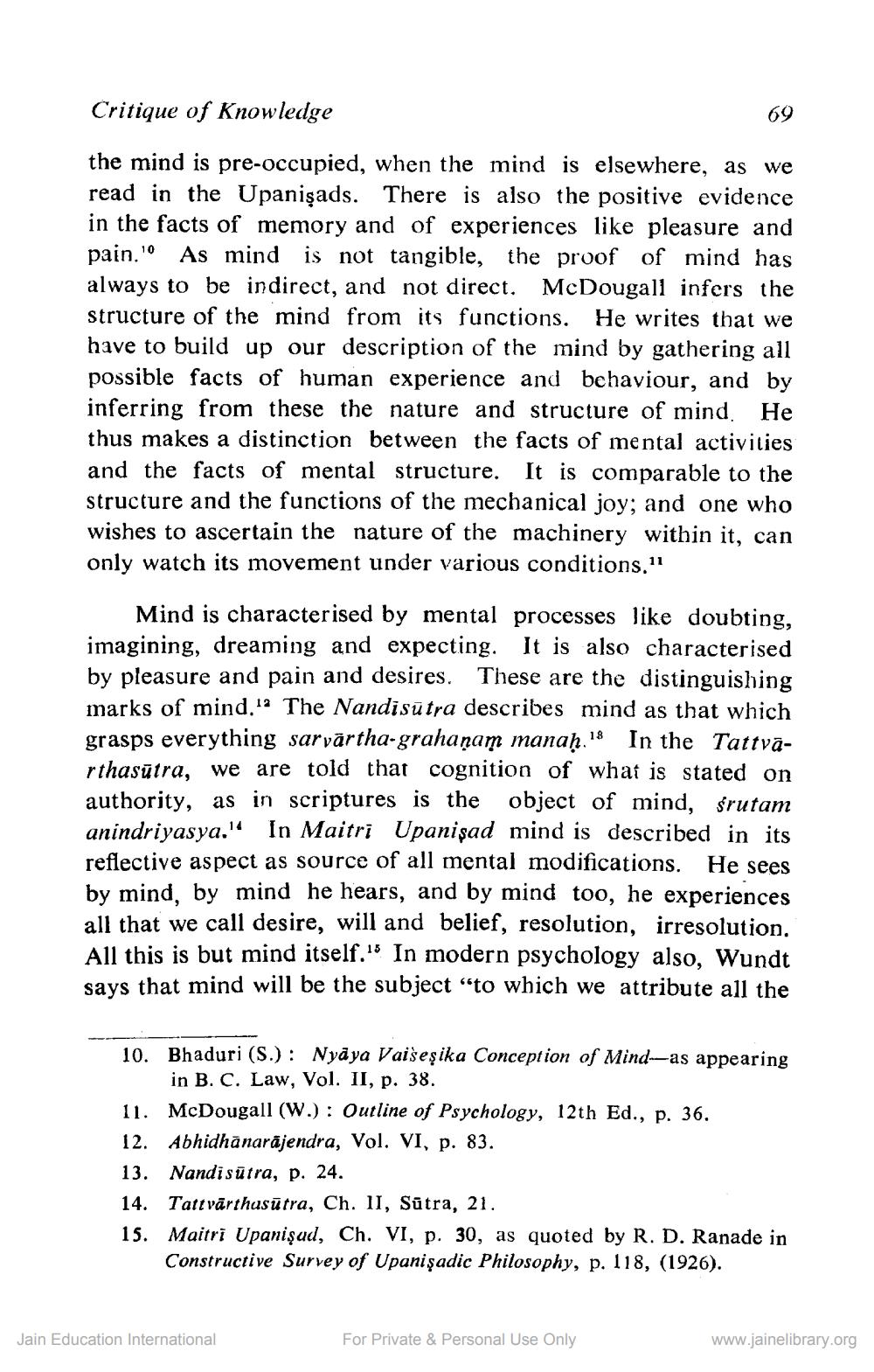________________
Critique of Knowledge
69
the mind is pre-occupied, when the mind is elsewhere, as we read in the Upanişads. There is also the positive evidence in the facts of memory and of experiences like pleasure and pain.' As mind is not tangible, the proof of mind has always to be indirect, and not direct. McDougall infers the structure of the mind from its functions. He writes that we have to build up our description of the mind by gathering all possible facts of human experience and behaviour, and by inferring from these the nature and structure of mind. He thus makes a distinction between the facts of mental activities and the facts of mental structure. It is comparable to the structure and the functions of the mechanical joy; and one who wishes to ascertain the nature of the machinery within it, can only watch its movement under various conditions."
Mind is characterised by mental processes like doubting, imagining, dreaming and expecting. It is also characterised by pleasure and pain and desires. These are the distinguishing marks of mind." The Nandi sūtra describes mind as that which grasps everything sarvārtha-grahanam manaḥ,18 In the Tattvarthasūtra, we are told that cognition of what is stated on authority, as in scriptures is the object of mind, srutam anindriyasya.' In Maitri Upanişad mind is described in its reflective aspect as source of all mental modifications. He sees by mind, by mind he hears, and by mind too, he experiences all that we call desire, will and belief, resolution, irresolution. All this is but mind itself." In modern psychology also, Wundt says that mind will be the subject “to which we attribute all the
10. Bhaduri (S.): Nyaya Vaišeșika Conception of Mind--as appearing
in B. C. Law, Vol. II, p. 38. 11. McDougall (W.): Outline of Psychology, 12th Ed., p. 36. 12. Abhidhānarājendra, Vol. VI, p. 83.
3. Nandi sūtra, p. 24. 14. Tattvārthasūtra, Ch. II, Sūtra, 21. 5. Maitri Upanişud, Ch. VI, p. 30, as quoted by R. D. Ranade in
Constructive Survey of Upani şadic Philosophy, p. 118, (1926).
Jain Education International
For Private & Personal Use Only
www.jainelibrary.org




